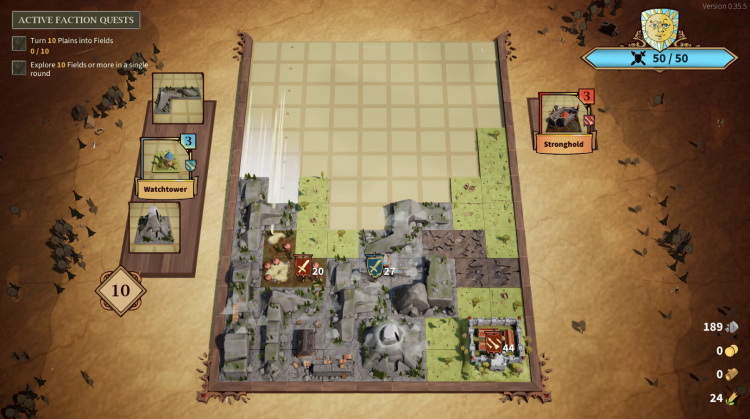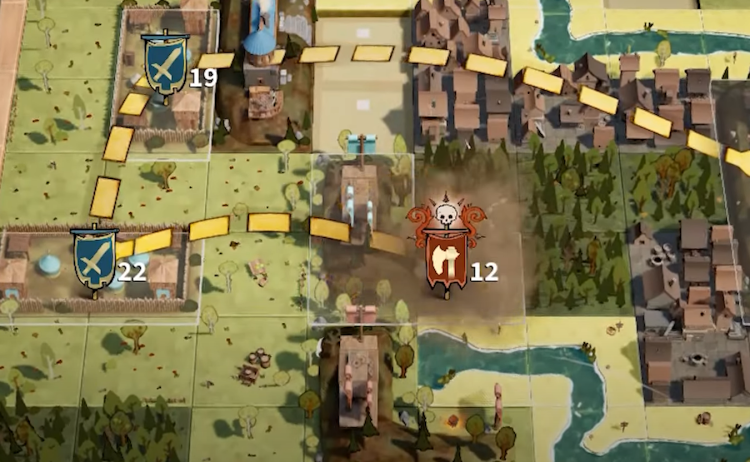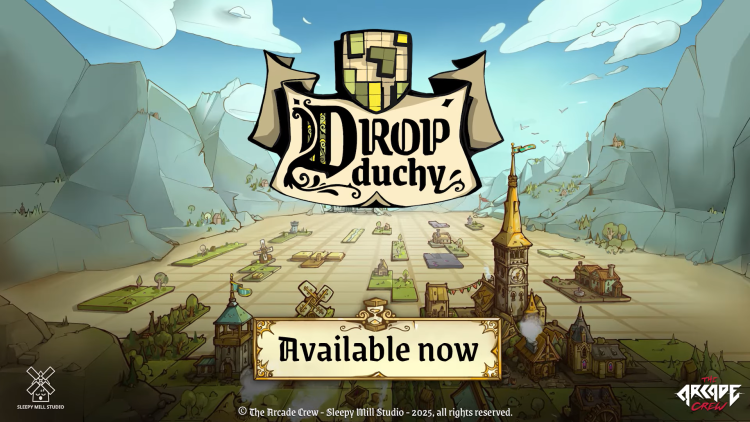Drop Duchy: How to Play the Tactical Roguelite That’s Got Everyone Hooked
You know that moment in Tetris where a perfect piece slides into place, clears the row, and gives you that tiny dopamine hit? Now imagine that, but instead of just scoring points, you’re stockpiling resources, prepping armies, and planning the downfall of enemy territories across a board. That’s Drop Duchy — and while it starts out looking like a block-dropper, it quickly morphs into something way more strategic and weirdly addictive.
On the surface, Drop Duchy plays like a hybrid of Carcassonne, Dicey Dungeons, and Balatro, but it’s not just borrowing ideas — it’s creating something entirely fresh. You can check it out yourself on Steam, where it’s already getting solid traction. If you’re a fan of slow-burn roguelites, puzzly combat, and deckbuilding mechanics that reward experimentation, this one’s worth your attention.
Tetris Vibes, Balatro Heart
Your first few minutes in Drop Duchy are deceiving. You’re dropping L-shaped forests or straight-shot mountain tiles onto a gridded map, trying to line them up efficiently. That’s the “easy” phase — the cozy buildup that the devs at Sleepy Mill Studio baked in intentionally. But once the round ends and those tiles convert into actual resources and military units, the whole tone changes. Suddenly, you’re not just building — you’re strategizing.
You’ll start assembling a deck of terrain tiles, structures, and unit cards, and then you’re off into battles that lean way more into tactical planning than twitch reactions. It feels a little like Dicey Dungeons, where your deck evolves as you progress, but the actual placement and combat math remind me of Balatro’s risk-reward gameplay loop.

Made by a Board Game Brain
Game director Jean-Baptise Oger is a board game obsessive — his 400-title collection kind of gives that away — and you can feel that love in every mechanic of Drop Duchy. On a call with Polygon, he mentioned how games like Cartographers and Dorfromantik were major influences. That explains why there’s such a physical, satisfying feel to placing tiles. It’s got the tension of a real tabletop session, but with the fast pace and replayability of a good roguelite.
Interestingly, it’s not just your own tiles you’ll be dropping. Sometimes, you’re placing enemy tiles too, messing with their setup, baiting them into poor positioning, or forcing awkward matchups. That level of depth keeps the game fresh even after dozens of runs.

The Math Problem
Here’s something that might trip some players up, but it’s totally intentional: there’s no auto-calculate in combat. You’re adding up attack and defense values manually, estimating matchups, and praying you got your math right.
“Even if you lose because you failed at math, you wouldn’t have progressed further anyway.” — Jean-Baptise Oger
Yeah, that’s a real quote. Oger knows this math element won’t be for everyone, and he’s already considering an auto-calc mode for accessibility, especially for players with dyscalculia. But part of the charm here is the slight uncertainty. You’re rewarded for planning, not perfection.
- Start with a basic deck of terrain tiles and unit types.
- Place tiles on the grid to generate resources (like wood, stone, or population) and unlock structures or troops.
- Draft new tiles between rounds to upgrade your deck.
- Use those tiles to prep for combat — positioning matters, because units interact differently depending on placement.
- Battle enemies by comparing stats and positioning advantages, trying to control the board while keeping your army intact.
- Progress through biomes that get darker and more challenging, unlocking new tile types and passive modifiers as you go.
The game layers complexity slowly, so your early runs feel like a warm-up. But the deeper you go, the more it asks from you — smarter plays, tighter tile fits, better resource planning. It’s not punishing, but it is demanding.
Drop Duchy is one of those indies that sneaks up on you. It looks simple, but it’s doing about five things at once — tile puzzler, card game, strategy sim, board builder, and roguelite all rolled together. It never feels overwhelming, though, because the learning curve is so well-tuned. You’ll pick up a few new mechanics every time you die, and come back sharper for it.

There’s still room to grow (like adding accessibility options or tweaking the UI), but the core loop is already rock solid. If you like the Balatro loop of gamble-learn-repeat or the grid logic of Into the Breach, you’ll probably love what Drop Duchy is trying to do. Just don’t be surprised when your quick session turns into a three-hour strategy binge.

Comments